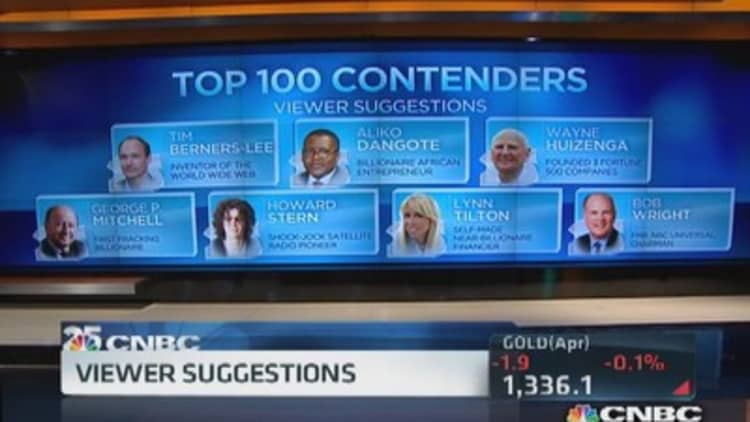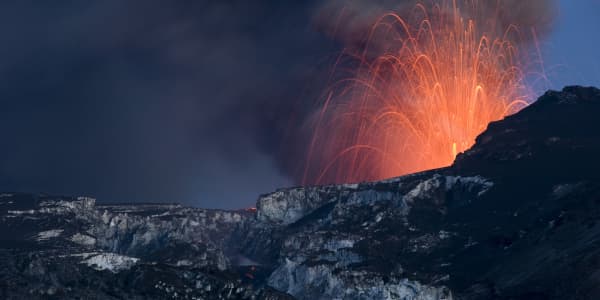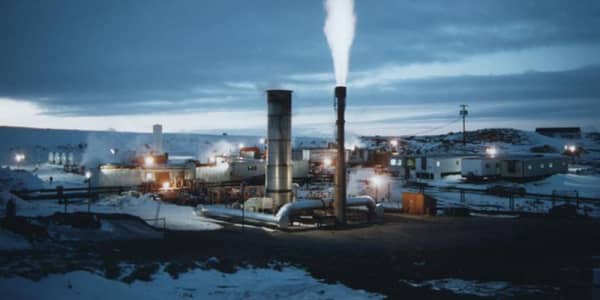
Little did we know that choosing the top 25 rebels, icons and leaders of business for the past 25 years would spark such a passionate response.
One month ago, we unveiled a list of 200 people from different parts of the world and across various industries who we thought were good contenders for the top 25 list. These were people who, for better or worse, had a profound impact on business and finance since 1989, the year CNBC came into existence.
We can now announce that, with your help, we have narrowed the list to the top 100 as the next step in creating the final list of the top 25. These are people who have had the greatest influence, sparked the biggest changes and caused the most disruption in business over the past quarter century. (See the detailed criteria here.)
We received hundreds of thousands of votes and thousands of comments. Within the newsroom, our journalists engaged in friendly sparring about their picks. Among the companies we cover, there have been reports of pride or outrage that a particular CEO was picked or left off the list.
(Related: Hey, don't forget about these guys!)
In the end, your votes, added to those of our panel of expert advisors, helped in deciding who made the cut and who didn't. As importantly, your write-in candidates brought scores of new names into consideration. Showing once again the wisdom of crowds, seven of your best suggestions have gone straight on our list of the top 100. They are:
Tim Berners-Lee. Pinch yourself twice, but the British computer scientist who created the World Wide Web posted the first Web page as recently as 1990. URLs, http://, HTML are all thanks to him, and without them there would be no apps, iPhones or Amazon. The vast mosaic of economic activity the Web has spawned is estimated to now be worth north of $10 trillion.
Aliko Dangote. Africa's richest self-made billionaire built his $20 billion fortune from soft commodities such as flour and sugar. Dangote turned the small trading company he founded in his native Nigeria into a conglomerate spanning much of West Africa and with industrial businesses ranging from cement to freight.
Wayne Huizenga. The American serial entrepreneur founded three Fortune 500 companies in three different sectors—Waste Management, Blockbuster and AutoNation. Most recently he has taken Swisher Hygiene public. Huizenga is also the former owner of three professional sports teams, the NFL's Miami Dolphins, the NHL's Florida Panthers and MLB's Miami Marlins.
George P. Mitchell. While not the sole fracking pioneer, the late Texas oilman was instrumental in developing the technical breakthroughs that made extracting gas from shale commercially viable. He built his Mitchell Energy & Development into a Fortune 500 company before selling it to Devon Energy for $35 billion in 2002, making him the first fracking billionaire.
Howard Stern. The shock jock was already one of the highest-paid on-air radio personalities—and the most fined U.S. radio host — before he hitched his star power to the nascent subscription satellite radio industry, signing a five-year $500 million contract with in 2004.
Lynn Tilton. The self-made billionaire left Wall Street to start what would become Patriarch Partners, a private equity firm that owns or controls 75 operating companies, including Dura Automotive Systems, MD Helicopters, Rand McNally and Stila Cosmetics.
Bob Wright. Under his 20-year tenure, the GE executive transformed NBC from a broadcast network into a global media powerhouse (including the launching of CNBC in 1989). His signature deal was GE's 2004 acquisition of Vivendi Universal Entertainment to create NBCUniversal, since acquired by Comcast.
Cutting the list to 100 was no easy task, and you can tell from those who didn't make the cut that we were forced to exclude some titans of industry. Our panel of experts was looking for those who brought about significant change and helped transform a business or industry. Some notable candidates didn't make the cut because our panel felt their greatest impact was prior to 1989. Boone Pickens fell into this category, as did the late Sam Walton, a particular write-in favorite. We also excluded write-in suggestions of those who were primarily academics and politicians rather than business executives, entrepreneurs or financiers. A final group was an up-and-coming set of business leaders whose biggest impact may still be to come like Yahoo's Marissa Mayer and Twitter's Jack Dorsey.
As we continue to narrow our list to the top 25 in celebration of CNBC's 25th anniversary, we still need your help. Please join us once more in making this important selection.
To vote, click on the photos of our top 100. Select up to 25 of your favorites. When finished, click the "SUBMIT YOUR VOTE" button at the bottom of the list.
In April, the month of our anniversary, we will reveal a ranked list of the top 25. Again, here is a detailed look at our criteria.
—By contributing editor Paul Maidment and Nikhil Deogun, editor-in-chief and SVP, CNBC Business News.




